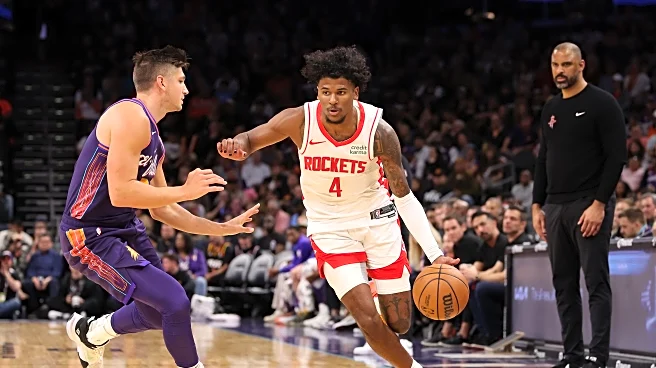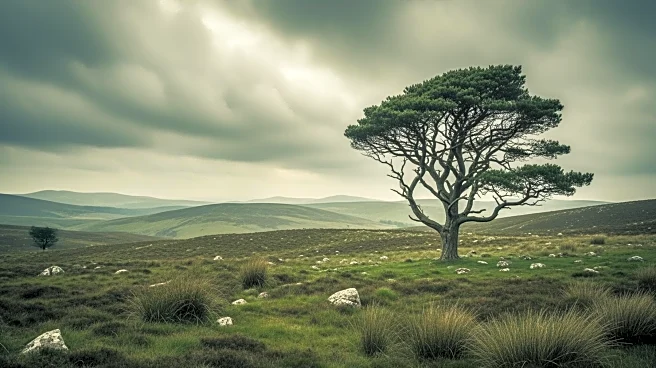Welcome to SB Nation Reacts, a survey of fans across the NBA. Throughout the year we ask questions of the most plugged-in Suns fans and fans across the country. Sign up here to participate in the weekly
emailed surveys.
For the most part, the Phoenix Suns’ starting lineup feels set, at least from our perspective. The power forward spot is still up for debate, but small forward? That feels a little more locked in. Or should it?
The Suns actually have multiple options at the three, each bringing a different wrinkle to how this team can play. So in this week’s SB Nation Reacts, we’re breaking down the possibilities and asking the question: Who should start at small forward for the Suns next season?
The Case for Dillon Brooks
You could start with the salary, since he’s the highest-paid player in contention for this spot at $21.1 million next season. But the money isn’t the whole story. He brings a two-way presence that fits what the Suns are trying to build.
Offensively, he’s not a star, but he’s steady. With Houston last season, he averaged 14.0 points per game on 43/40/82 shooting splits. That’s reliable enough to slot alongside Jalen Green and Devin Booker, where spacing and gravity create open looks he can consistently cash in on.
Defensively, though, is where he earns his paycheck. He’s a dog, a grinder. B-Ball Index graded him as an A+ in Perimeter Isolation Defense and a B- as an Off-Ball Chaser. He applies pressure at the point of attack, which is exactly the kind of defensive intensity the Suns want to hang their hat on next season.
The Case for Grayson Allen
Grayson is another strong option, and through the salary lens, he makes sense as well. GA is set to earn $16.9 million next season.

If it’s an offensive punch you’re after, Grayson delivers. Two seasons ago as a starter, he led the league in three-point shooting at 46.1% while averaging 13.5 points across 74 starts. From a spacing standpoint, you won’t find many small forwards who provide more value. He can also put the ball on the deck and attack, applying pressure at the rim, particularly in transition.
Defensively, there’s a noticeable drop-off compared to Dillon Brooks, but he’s not a liability. B-Ball Index grades him as a C+ in Perimeter Isolation Defense and a B in Off-Ball Chaser Defense. Serviceable, but not spectacular. The real question with Grayson is whether you prioritize his offensive firepower over the defensive edge other options might bring.
The Case for Ryan Dunn
Adding Ryan Dunn to the starting rotation gives the Suns a true point-of-attack defender with length, instincts, and relentless energy. His aggressiveness on the perimeter makes him a dangerous weapon at the three, and when paired with Jalen Green and Devin Booker, he helps cover for their defensive shortcomings.
The challenge with Dunn, of course, is on the offensive end. But as he enters his second season, there’s hope for growth. His three-point accuracy remains a question mark, though Summer League showed flashes of confidence in attacking the basket and finishing through contact. If that translates, it could carve out real staying power for him in the NBA.
And if the Suns view Dunn as part of their future, now might be the time to show it. Give him the opportunity, let him grow into the role, and trust his development. If he evolves into a reliable three-and-D wing, that’s a massive win for Phoenix. In a season of transition, as the team resets its foundation and culture, Dunn could be both a symbol and a product of that reformation.
The Case for Nigel Hayes-Davis
Hayes-Davis is another long, versatile defender who also brings an offensive punch. You don’t win EuroLeague MVP by accident, and while he’s now 30, this season represents his first real opportunity to showcase the maturity and growth he’s developed since his last NBA stint back in 2018.
For the Suns, starting him at the three early in the season could make sense. It would give Hayes-Davis a chance to prove himself against NBA competition while also providing stability as the younger players continue to develop around him. His combination of size, defense, and proven scoring ability overseas makes him a wild card option worth considering in the rotation.
So what do you think? Who should the Suns roll with at the small forward spot? Do you pencil in Dillon Brooks, call it a day, and let his defense set the tone? Or do you slide him to the bench and give someone else the shot, whether it’s Grayson’s offensive firepower, Dunn’s defensive upside, or Hayes-Davis’ all-around versatility?
This is where it gets fun. The Suns actually have options, and how they play this card could go a long way in defining their identity next season.









